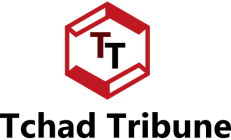Report by Amina Ben Messaoud and Khaled Nasraoui, in Tunis Launched by Expertise France, the Rendez-vous de l'Expertise, one of the new highlights of the Institution's agenda, a space for debate and exchanges between experts in international technical cooperation, aims to highlight the challenges of international cooperation while proposing concrete solutions to accelerate economic development in countries of the South. Through these meetings, Expertise France builds bridges between technical expertise, innovation, and entrepreneurship, while mobilizing the talents and know-how from the diaspora. The African diasporas were the ones to whom the latest RDV de l'Expertise, held on September 26 in Tunis, was dedicated. This choice was far from insignificant. Indeed, Tunisia, a pioneering country in terms of diasporic entrepreneurship, stands out for its proactive policy aimed at supporting its nationals abroad. Through innovative initiatives, such as tax incentives and investment facilities, Tunisia encourages its diasporas to actively participate in the country's development, as explained by Syma Mati, project manager of the MEET Africa 2 program at Expertise France. In this respect, "Tunisia is fertile ground for diasporic entrepreneurship, and this meeting perfectly illustrates the country's commitment to mobilizing its talents abroad." The diaspora plays a major role in the development of countries of origin, particularly through entrepreneurship. As Habiba Addi, head of entrepreneurship programs at Expertise France, points out, 'diasporas are essential players in economic development in Africa. Thanks to initiatives like Meet Africa, we are strengthening the links between these entrepreneurs and their countries of origin.' This dynamic translates into transfers of skills, capital and access to transnational networks. In 2023, according to the World Bank, Africa had more than 250 million entrepreneurs, 58% of whom were women, contributing nearly 60% of the continent's GDP. A large part of this growth is drive n by members of the diasporas, who bring not only financial resources but also know-how acquired internationally. During this edition of the Rendez-vous de l'Expertise, several speakers shared their 'expertise' including Zeineb Messaoud, executive director of The Dot, 'the beating heart' of the entrepreneurial initiative in Tunisia, partner of the event but also of Meet Africa. 'Historically, the diaspora has always played a role in its country of origin. These are people who leave the country but keep very strong ties for the most part, especially with the families they continue to finance, Zeinab recalled, citing in passing the conclusions of an OECD study 'in Tunisia, dual nationals have a higher proportion of creating their own business, which has an impact on the development of the country.' 'Diasporas act as translators of investment opportunities in their home countries. They reduce the perception of risk by bringing a deep understanding of local realities and international markets,' continued Eric V incent Guichard, Founder and CEO of Homestrings. It remains to support this diaspora in its desire to undertake 'at home'. Concrete initiatives to support diaspora entrepreneurship The meeting was also an opportunity to highlight concrete projects, such as the MEET Africa 2 program, which illustrate the positive impact of involving diasporas in development. This program, led by Expertise France in partnership with the European Union, aims to encourage the creation of businesses by members of African diasporas living in Europe. The opportunity to hear the testimonies of beneficiaries of these programs. "Diasporic entrepreneurs must juggle between two cultures, two different regulatory environments, and this can be a hindrance to their expansion," confided Marwa Moula, founder of Iley'Com, who will discuss human resources management and cultural adaptation as the major challenges these entrepreneurs face. Challenges for Diaspora Entrepreneurs In fact, while opportunities are numerous, diaspora entrepreneu rs face several challenges. One of the main obstacles remains access to information and financing. Kara Diaby, head of Repat Africa, recalled that "access to capital remains one of the main obstacles for diaspora entrepreneurs. There is a real problem of maturity and access to financing for projects in Africa." But solutions exist, and they are specifically aimed at these diaspora entrepreneurs. This new edition of the Rendez-vous de l'Expertise in Tunis will have made it possible to make them known while highlighting the major role of diasporas in the economic development of their countries of origin. Diaspora entrepreneurs, with their dual culture, act as bridges between their host and home countries, thus facilitating sustainable and inclusive development. And their initiatives also contribute to achieving the Sustainable Development Goals (SDGs), particularly in terms of reducing inequalities and inclusive growth. As Amine Aloulou, President of Atuge, concluded: "the diaspora is not only an economic forc e, it is also a source of innovation and creativity for the sustainable development of the French-speaking world." Source: Africa News Agency
Related Posts
Samoan agreement: FG to drag Daily Trust to NPAN, court
The Federal Government says it will drag the Daily Trust Newspapers to the Newspapers Proprietors Association of Nigeria (NPAN) over its publication on the Samoa agreement.
Mr Mohammed Idris, Minister of Information and National Orientation, who gave…
Grootfontein, Namibia: Police Seek Public Assistance to Locate Abandoned Boy’s Parents
The Namibian Police Force in Kavango East Region is calling for public assistance in locating the parents of a 12-year-old boy, Branden Likuwa, found abandoned in Grootfontein. Deputy Commissioner Bonifatius Kanyetu, the region’s Crime Investigations …
Royal Armed Forces Rescue 186 Sub-Saharan Migrants off Bir Gandouz
Rabat – Elements of the Royal Armed Forces intercepted 186 sub-Saharan migrants attempting to reach the Canary Islands on Tuesday, after their canoe ran aground approximately 30 kilometers south of Bir Ganduz, says a FAR statement on Tuesday.
The mig…
